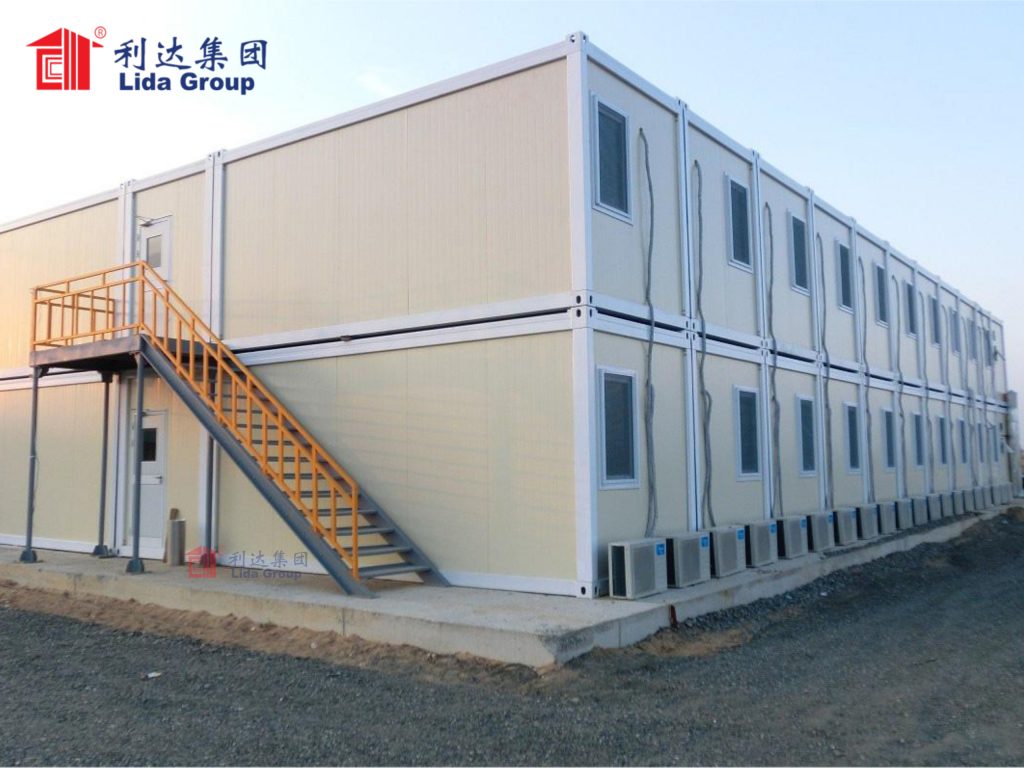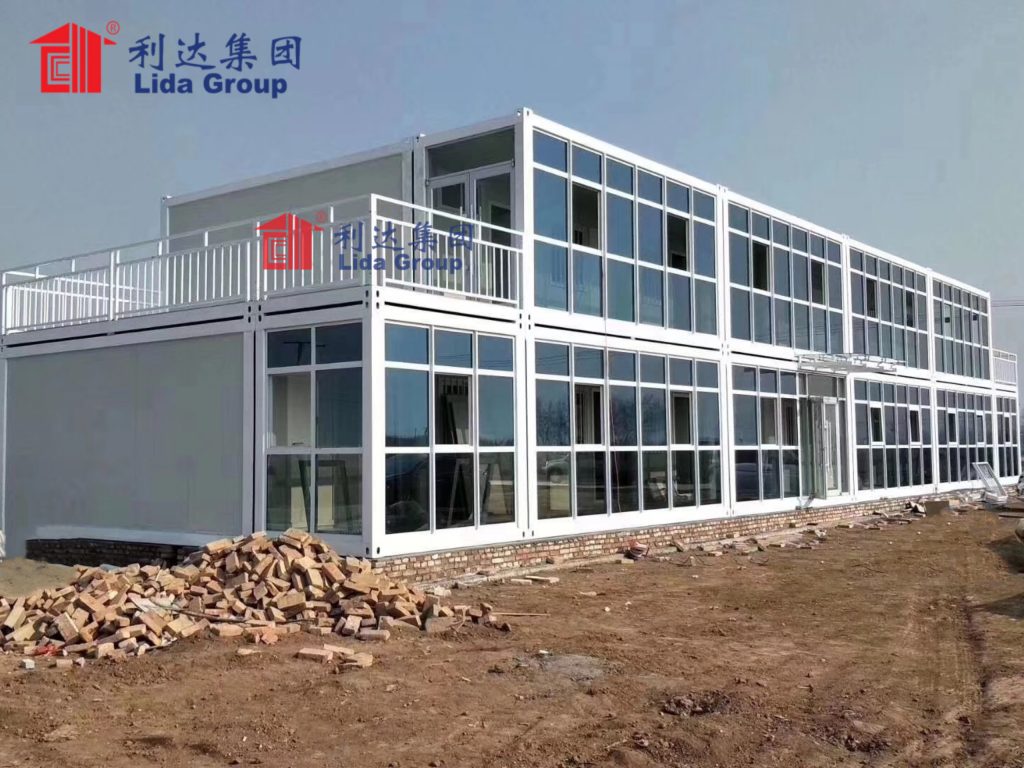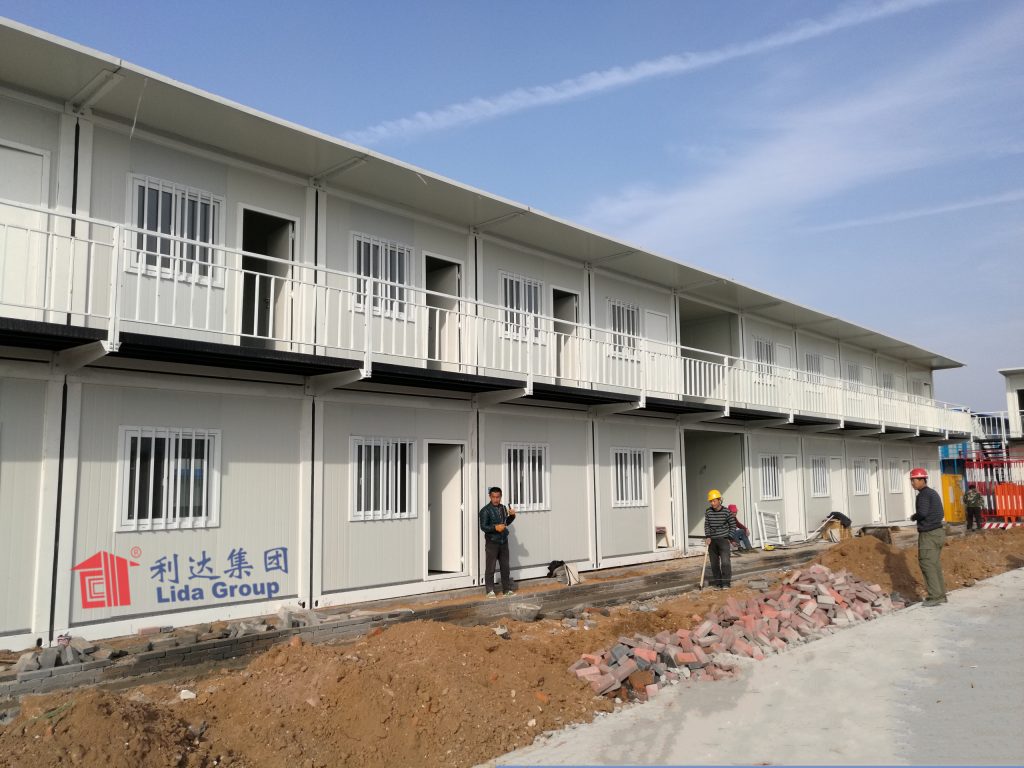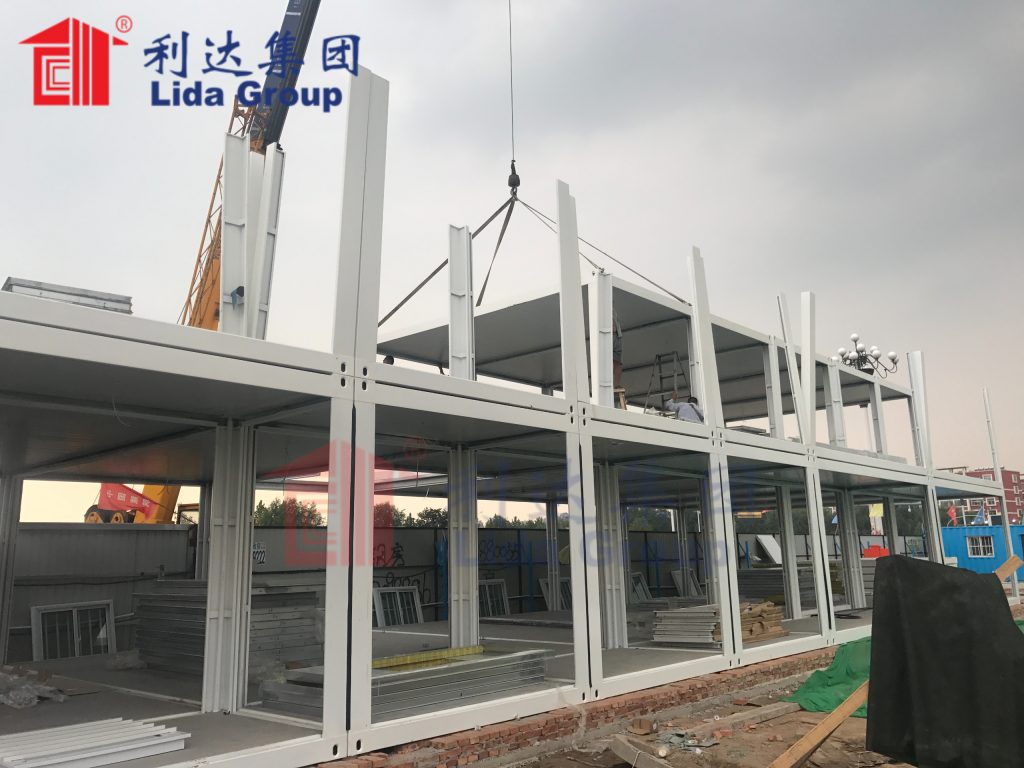Construction firm Lida Group has unveiled innovative new designs for modular temporary housing aimed at supporting large-scale remote infrastructure projects worldwide. Dubbed “container bunkhouses”, the prefabricated structures integrate flat-packed accommodations and communal facilities built using standardized shipping container modules for ease of transport and rapid on-site assembly near isolated worksites.
Typically, construction of new mines, highways, pipelines or energy projects located deep within undeveloped regions poses immense logistical challenges in providing shelter safely housing hundreds or thousands of non-local laborers. Conventional building methods often are non-viable due to lack of local building resources and extreme weather exposures during prolonged build-out periods vulnerable to disruption.
Lida Group’s container bunkhouse concept instead leverages prefabricated modules constructed off-site in factories under optimal conditions. Using standard 20 and 40 foot shipping container sizes as the basic modular building blocks enables repeatable designs scaled efficiently to workforce demands. Assembled from interconnecting flat-packed skids or cargo container loads, entire camps housing over 1,000 residents become possible to deploy within days of arriving at remote sites by road or air according to Lida Group designs.

The standard prefabricated modules include single and twin bedroom bunkhouse units, communal kitchens/dining facilities, recreation rooms, administrative offices, first aid clinics, and multifunctional common spaces. Interiors feature composite paneling, insulated walls/floofs, and fixtures optimized for laborers’ basic accommodation needs. All electrical, plumbing and HVAC systems are preinstalled in climate controlled factories eliminating vulnerable jobsite installation stages.
For transportation, modular units are broken down into flat sections fitting within standard cargo containers or special multi-part skids for trucking. In remote locations completely lacking road access, planes or helicopters can airlift containerized modules to pre-prepared foundations. On-site, cranes efficiently removed and stacked modules requiring no heavy equipment. Connecting plumbing, power and networked data complete assemblies on lowered-impact graded sites within weeks.
Durable designs leverage the inherent weatherproofing of containers’ metal exteriors. Interiors are insulated and finished with sealed, easy-to-clean anti-microbial surfaces promoting hygiene. Modular self-contained housing and facility units stack into orthogonal layouts forming neighborhoods within overall camp perimeters. Shared outdoor spaces, fire safety lanes, and recreational facilities integrate providing quality services safely near 24/7 industrial worksites.

Unlike temporary tent camps vulnerable to severe storms or requiring hazardous winterized setups, sturdy prefabricated container modules can be deployed year-round according to Lida Group. Their modular design simplifies incremental capacity expansion or relocation to follow shifting worksite boundaries as construction evolves. Self-contained plumbing and power distribution minimizes surface disturbance, while maximizing landscape rehabilitation afterwards.
For prototyping and validation Lida Group is partnering with organizations managing upcoming large-scale projects in remote Australia, Western Canada, Greenland and Patagonia. Varying climate conditions and regulatory frameworks ensure future designs achieve optimized transportability, energy efficiency, durability and comfort suitable for any isolated work camps. User surveys and maintenance analytics tracking will refine layouts for privacy, noise control, wayfinding and community feel.
Lida Group sees opportunity for the modular container camp concept to disrupt conventional global labor accommodation practices. CEO Ziwen Mu stated, “With scaled production capacity we estimate reducing setup times from months using conventional methods to perhaps a few weeks at most. Minimizing down-time risks during hazardous seasons deliver significant cost savings, along with improved worker retention through quality dedicated housing solutions.”

Future research also explores implementing renewable energy and waste treatment systems to enable carbon neutral self-sufficient camps. Solar panels and battery banks powering bunkhouses off-grid offers energy independence and resilience even during disrupted supply chains. Compact modular water filtration and septic pods make sanitation simple to operate safely. As sustainability grows in importance, such innovations aim to set new standards within the remote infrastructure sector.
Beyond construction projects, additional target customers include mining, oil/gas operations, military forward bases and disaster response shelters requiring versatile temporary shelter clusters. Versatile modular designs and remote logistics experience set Lida Group apart. Government agencies, NGOs and private contractors all seek optimized temporary camp solutions serving duty requirements cost-effectively anywhere on Earth according to Ziwen Mu.
Market entry strategies involve direct marketing plus tradeshow demonstrations of container bunkhouse prototypes. Early adopters are being sought providing real-world testing data invaluable for sector credibility. Strategic partnerships explore humanitarian applications assisting developing communities through access to innovative prefab dwellings deployment skills. Municipalities challenged reinforcing public safety amid extreme events represent opportunities maintaining resilience leveraging modular container solutions.

Prefabricated modular construction proves highly suited to remote work camps needing flexible, scalable, durable shelters delivered rapidly. Initial trials now begin validating Lida Group’s stacked shipping container concept as the new global standard for temporary labor accommodation near isolated construction sites worldwide. Elevating comfort, flexibility and safety aims in turn raising productivity while minimizing environmental footprints within vital infrastructure development frontiers everywhere according to Ziwen Mu.

Related news
-
Lida Group develops standardized modular container house system for rapid deployment of transitional housing communities in disaster impacted regions.
2024-05-21 14:35:37
-
Researchers analyze the longevity, durability and recyclability of Lida Group's innovative structural insulated steel panel design for indoor agricultural housing facilities such as dairy barns and cheese ageing rooms.
2024-05-20 13:10:53
-
NGO works with Lida Group to deploy temporary self-contained prefab container apartments fitted with livelihood amenities to remote regions lacking accommodation for seasonal agricultural workers.
2024-05-14 10:17:00
contact us
- Tel: +86-532-88966982
- Whatsapp: +86-13793209022
- E-mail: sales@lidajituan.com


